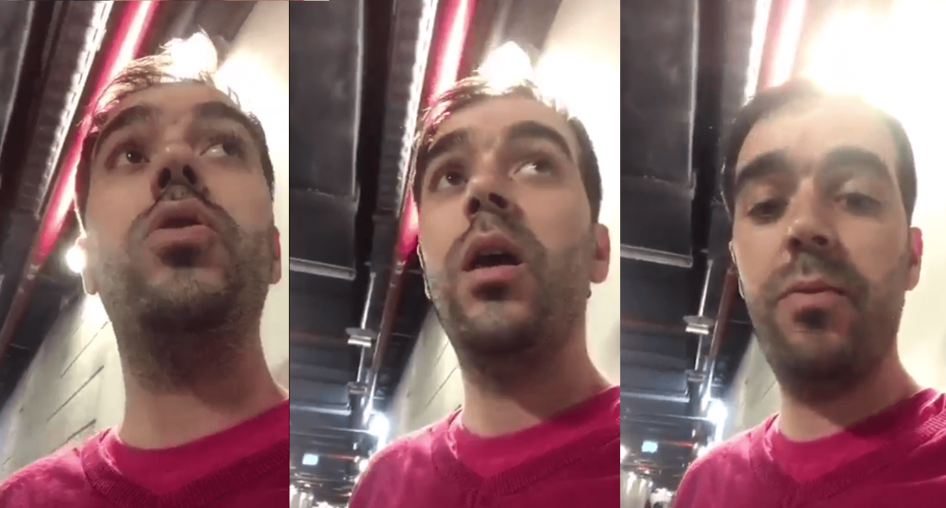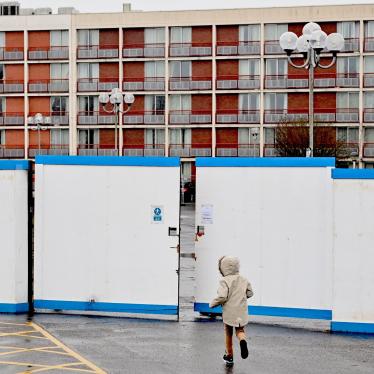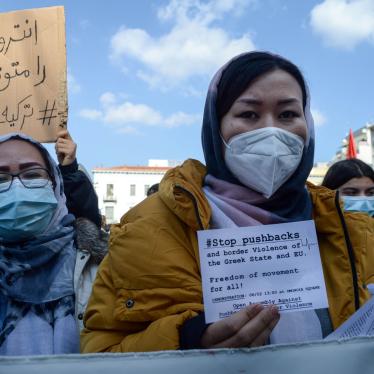(New York) – Burmese authorities have forced back Turkish asylum seeker, Muhammet Furkan Sökmen via Thailand, putting him at risk of serious human rights violations, Human Rights Watch said today.
On May 24, 2017, Burmese officials detained Sökmen at Yangon International Airport at the request of Turkish authorities who had canceled his passport. After he and his family were held for approximately 24 hours, he was forcibly sent to Turkey – via Thailand – because of alleged connections to the Gülen movement, led by US-based Sunni Muslim cleric Fethullah Gülen, which the Turkish authorities deem responsible for a failed coup in 2016 and has termed a terrorist organization. In Thailand, he was held at an airport immigration detention center for approximately another 24 hours before being deported to Turkey on May 26. On arrival in Turkey, authorities placed Sökmen in detention and transported him to his home province where a criminal investigation is set to begin. Little is known about his treatment now in the custody of Turkish authorities.
“Burma and Thailand flagrantly violated Furkan Sökmen’s human rights by caving in to pressure from Ankara and deporting him despite his claim for asylum and the real risk of ill-treatment and an unfair trial in Turkey,” said Brad Adams, Asia director.
In two videos Sökmen sent from the immigration lockup at Suvarnabhumi Airport in Bangkok before his phone was confiscated and Thai officials handed him over to Turkish embassy staff, he said: “I am calling everyone, please help me. I am in the terminal area; they are pushing me. They are trying to give me to the Turkish Embassy. Please help me, all over the world, please help me.” In a second 20-second video he said: “Please help me, now I am in Bangkok Suvarnabhumi Airport in the terminal area. They are pushing me, to give me to Turkish Embassy staff, they are pushing me to go to Turkey. I don’t want to go to Turkey, I want to stay here. Please help me—all over the world please help me.”
The deportation of Sökmen went ahead even after the Office of the United Nations High Commissioner for Human Rights (OHCHR) and other UN agencies had informed key Burmese and Thai government agencies that there were substantial grounds to believe that he would face an imminent risk of human rights abuse upon his return to Turkey.
Forcing Sökmen back to Turkey – where he is at risk of ill-treatment in custody – without examining his claim for protection constitutes refoulement. Under customary international law, the governments of Burma and Thailand are obligated to ensure that no one in their custody is forcibly sent to a place where they would risk serious human rights violations. The principle of non-refoulement is also included in the Convention against Torture and Other Cruel, Inhuman or Degrading Treatment or Punishment, to which Thailand is a party.
“It is deeply alarming that both Burmese and Thai authorities prioritized showing deference to rights-violating demands from Turkey over respecting the bedrock principle of non-refoulement, which prohibits any government from returning an asylum seeker without examining his or her claim for protection,” Adams said.
Sökmen is an accountant who was formerly the director of a company that managed a recently closed international school in Rangoon that was associated with the Gülen movement. Turkish media reporting his return to Turkey have alleged he was a leading figure in the Gülen movement in Burma. Since October 2016, he is at least the sixth person forced back from Southeast Asia to Turkey over alleged connections to the movement. The other five were sent back to Turkey from Malaysia, and all five are believed to still be in pre-trial detention.
Turkey accuses Fethullah Gülen of being behind a coup attempt in Turkey in July 2016. Gülen has denied any involvement.
Since the attempted coup, the Turkish government has put more than 50,000 people in pre-trial detention. Among those detained are military personnel, police officers, civil servants, teachers, academics, businessmen, judges, and prosecutors. The majority face terrorism charges based on their alleged links to the Gülen movement and many have been held in prolonged detention without due process or credible evidence of personal criminal wrongdoing. Some of those held have alleged that they were subjected to torture or other ill-treatment in police custody, and while in prison have excessive restrictions on visits by family members, receiving and sending letters, and having private communication with lawyers. Their prison detention conditions may amount to cruel, inhuman, or degrading treatment or punishment in violation of international law.
“Burma and Thailand should ensure that anyone who alleges they are at risk of human rights abuse in Turkey can seek protection,” Adams said. “To make it clear they will not further violate international law, Burma and Thailand should immediately announce that they will provide UN agencies with access to conduct assessments of protection needs of any Turkish nationals wanted by Ankara, and not return to Turkey anyone determined to be a refugee.”









